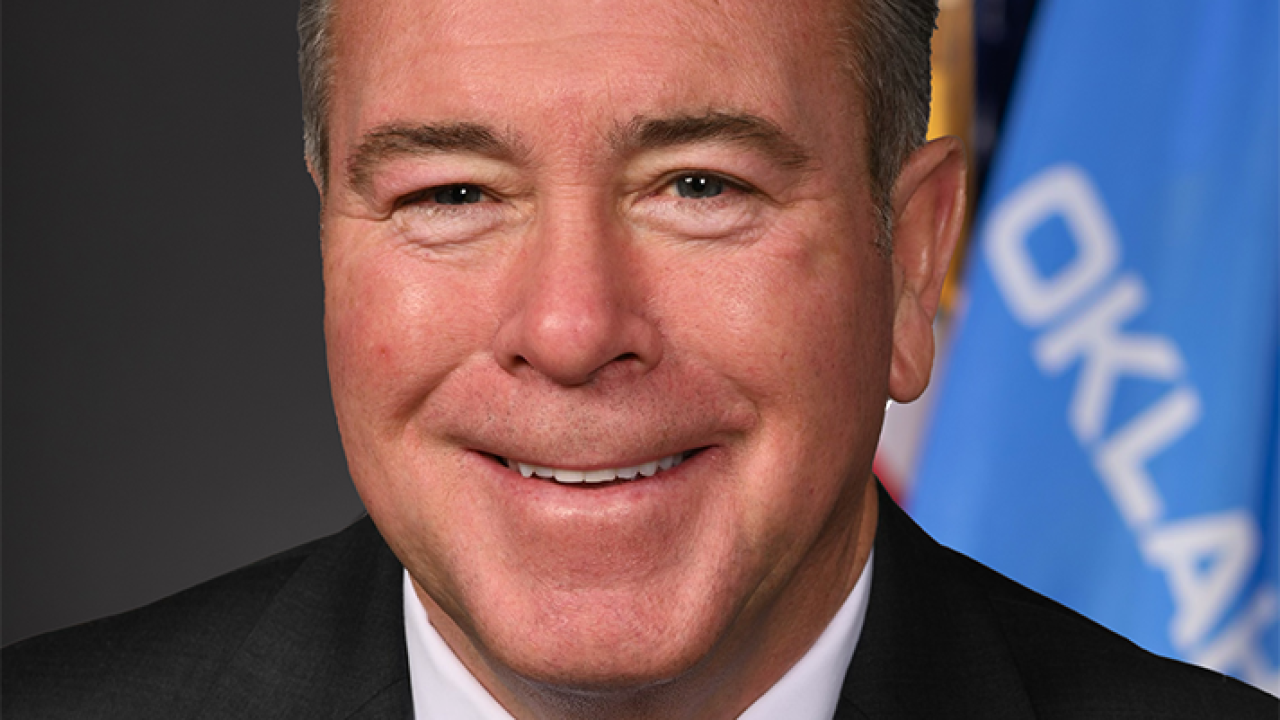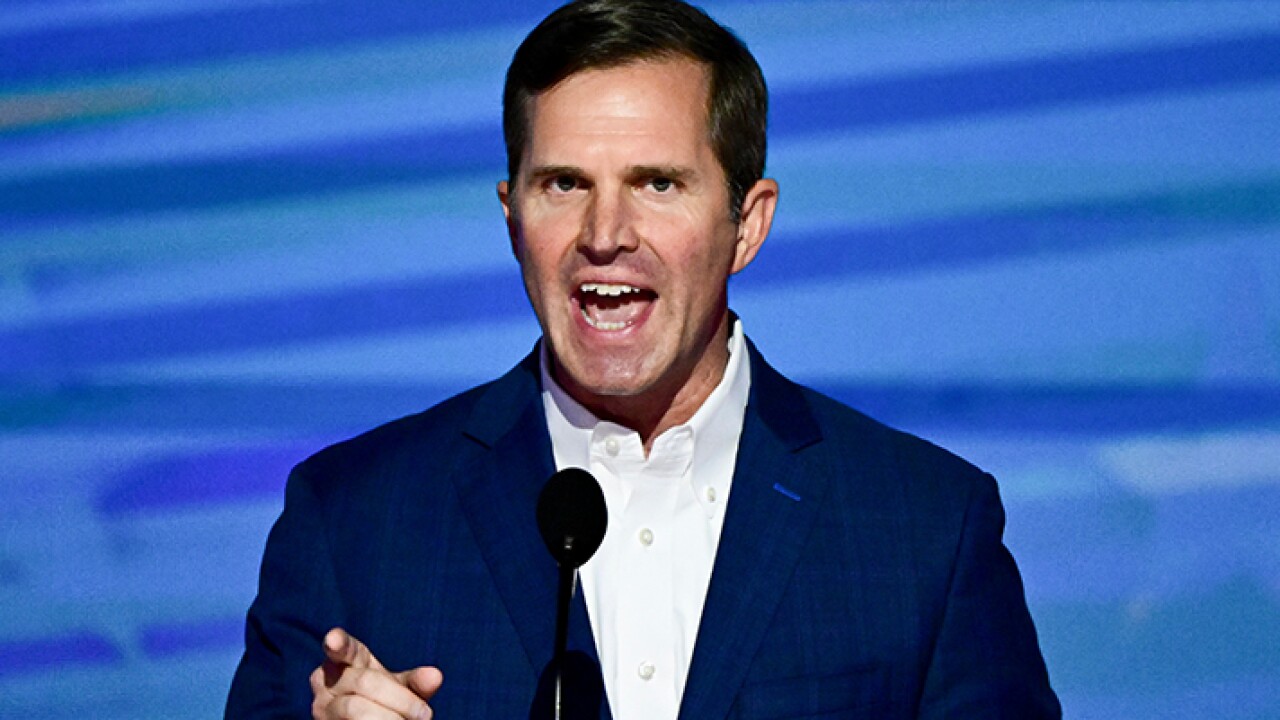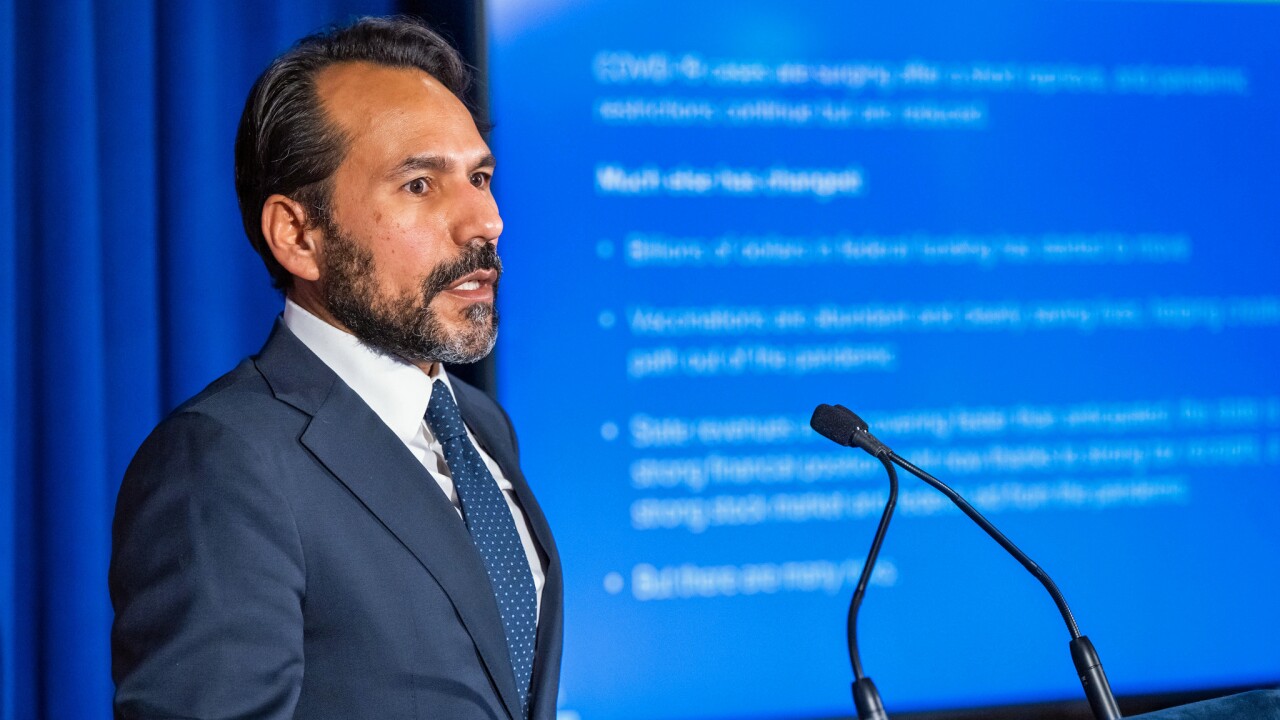
DALLAS — Risk-averse investors are expected to dive into a $711 million pool of top-rated Texas Water Development bonds going to market this month.
With the preliminary official statement scheduled for release Sept. 7, pricing is set for two days beginning Sept. 19, said Bech Bruun, chairman of the TWDB.
Bank of America Merrill Lynch & Co. is senior manager on the negotiated deal, led by managing director Thomas Liu and director Dalton Smith.
Anne Burger Entrekin, managing director at First Southwest Co. is financial advisor.
McCall, Parkhurst & Horton partner Jeff Leuschel is bond counsel.
The upcoming deal is the second and the second-largest under the board's new program called the State Water Implementation Fund for Texas.
The $900 million inaugural deal in 2015 was oversubscribed 2.5 times, saving $106 million in interest cost for a pool of 20 borrowers, Bruun said. The TWDB leverages its triple-A rating to lower interest costs for local utilities and water projects that carry lower ratings, though some are nearly triple-A on their own.
"We felt like last year the inaugural transaction was very successful," Bruun said. "We're very optimistic about this issue."
The pricing of such well-secured bonds in a historically low interest-rate environment is expected to attract institutional and retail investors looking for minimal risk at the price of accepting for minimal yield.
The sale also comes during a shortage of muni bond supply compared to demand, though volume rebounded to a 30-year record for the month of August.
The TWDB will share the market with the Texas Transportation Commission, which is planning to price about $700 million of bonds this month, as well.
"We don't foresee any problems with their issuance," Bruun said of the TTC deal.
The water bonds follow heavy issuance from Texas in July and August.
Compared to the AAA tax-exempt benchmark, "Texas spreads were actually much tighter than the plus-15/16 basis points neighborhood before the massive influx of Texas issuance in July and August which has really widened Texas spreads back out," said Dan Berger, senior market strategist for Municipal Market Data.
"MMD subscribers have told us that everyone is nearly full on Texas names and we continue to see the same bonds in the 2031-2045 range be recycled among arb desks," Berger said. "We don't think this deal will necessarily pressure spreads too much wider, if at all, but near-term we can't imagine spreads in 10-years and longer narrowing very much either."
Texas general obligation bonds currently have a spread of 16 basis points over Treasuries in the 10-year range and 20 basis points in the 20-year range, according to MMD.
"They have averaged plus-15.2 basis points and plus-16.3 basis points during 2016," Berger said. "This means that they could outperform other AAA obligors should there be a mean reversion."
Also hanging over a market with low volatility is the prospect of a Federal Reserve rate hike at the Federal Open Market Committee Sept. 21, two days after the Texas water bonds price.
Janet Vail, head of fixed income research at U.S. Bank Wealth Management, took note of Fed Chair Janet Yellen's recent "hawkish" comments on an improving economy that could signal an inclination to raise short-term rates in September, nine months after the last rate hike.
"While this certainly increases the odds of a hike in September, we maintain our base case view that the December meeting will be the timing of the next increase to the fed funds rate," Vail wrote in a market report. "Our rationale is that the Committee has previously acknowledged the improvement in the labor markets. ... We believe the bar is still a bit high for a September increase to occur."
Speculation about the rate hike is similar to the guesswork in 2015, a year in which Texas issuers sold a record volume of bonds. Even after the December rate hike, muni yields fell to record lows shortly after British voters in June chose to leave the European Union.
Nothing in the ratings reports on the SWIFT bonds is likely to inhibit demand. Standard & Poor's Global Ratings and Fitch Ratings affirmed their triple-A ratings with stable outlooks.
"The ratings reflect the combination of a very strong enterprise risk profile and an extremely strong financial risk profile," said Standard & Poor's Global Ratings credit analyst James Breeding.
Certain overriding factors have also been applied, Breeding said, including the extremely strong history of payments to the TWDB through other financial assistance programs, and the ability for the sizable overcollateralization to address extraordinarily high default or delinquency.
Texas Comptroller Glenn Hegar said the top ratings "underscore the stability and sound fiscal management of the Texas economy."
The program is financially structured with two funds: the State Water Implementation Fund for Texas; and the State Water Implementation Revenue Fund for Texas. Revenue bonds for the program are issued through the SWIRFT.
In November 2013, voters approved an amendment to the state constitution that created the SWIFT and the SWIRFT. The new law allowed a $2 billion transfer from the state's rainy day fund to the SWIFT.
Bond cash flows are structured to match coverage of annual bond debt service due. A bond enhancement agreement is provided and funds are then transferred from the SWIFT to the SWIRFT. The transfer is sized to provide for the targeted subsidy amount determined by the TWDB. The TWDB is authorized to execute no more than two bond enhancement agreements each fiscal year.
Proceeds of the series 2016 bonds will be used to purchase debt from 16 local issuers across the state. Loans range in size from $430 million for the Tarrant County Regional Water Districts Integrated Pipeline project to smaller local water conservation efforts such as an aquifer storage system in Bryan, Texas.
The SWIRFT bonds are secured by the repayment of the local debt, coupled with funds initially transferred to the SWIRFT.
For investors looking for top-rated Texas paper, creation of the SWIFT/SWIRFT will mean more issuance from the TWDB.
"We've already committed $4.5 billion for future SWIRFT transactions," Bruun said. "In 2018, we've got over $1 billion committed. We already know that future commitments will be larger."
Senior Market Reporter Chip Barnett contributed to this story.





